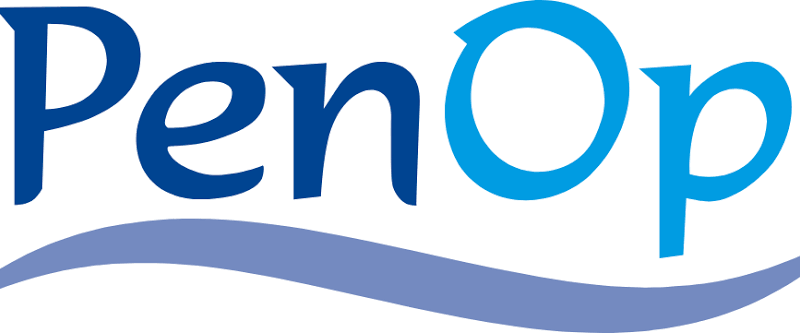CAPTION:
L- Client Technology Lead, Microsoft Nigeria, Wole Odeleye; Managing Director, Interswitch Systegra, Jonah Adams; Group Chief Executive Officer, Old Mutual West Africa, Samuel Ogbu; CEO, Modion Communications/Convener, Insurance Meets Tech, Odion Aleobua; Tosin Faniro-Dada, Managing Director & CEO, Endeavor Nigeria; Head of Sales, Leadway Assurance, Sola Ajayi and Chief Executive Officer, PaddyCover, Mayowa Owolabi, at the first edition of the Insurance Meets Tech (IMT 2022), an era-defining discourse for leaders in the insurance and tech sector.
By admin
Stakeholders in the insurance and technology sectors have called for partnerships, collaborations, and technology adoption as expedited strategies for Nigeria’s insurance penetration at the Insurance Meets Tech (IMT) inaugural edition conference.
This landmark multi-industry discourse, convened by Modion Communications on Thursday, September 29, 2022, was headlined by over twenty industry-leading thought-leaders from the Insurance, finance, and technology sectors from across Africa, such as Microsoft Nigeria, Ecobank Nigeria, Old Mutual Group, Leadway Assurance Company Limited, AXA Mansard, Curacel, ActivEdge Technologies, MediSmarts among others. The conference also had in attendance over 300 C-Suite executives as delegates representing multiple companies.
Speaking on the role of big data and cloud computing in bolstering the operations of the Nigerian insurance sector, Ola Williams, Country Manager, Microsoft Nigeria, explained that leveraging technology increases the brand value of insurance organisations and allows insurers to free up their capital outlay to accommodate potential customers.
“Data is a source of wealth and power, and it has become a key disruptive factor that organisations leverage for competitive advantage. Cloud computing is also key to organisations’ insight acquisition for detailed reporting of different aspects of their operational efficiencies. Since insurance is the transfer of risk from one entity to another, as an insurer, data gives insight into the behaviours and preferences of individuals and as such, supports the provision of differentiated offerings to customers. Indeed, the limit to how we can use data is in our imagination”, she said.
Also speaking at the event, Olusegun Omosehin, Incoming Chairman, Nigerian Insurers Association (NIA), cited the irrefutable importance of collaborations and partnerships between the insurance and technology industries in operationalising a digital-led customer acquisition journey, thereby deepening insurance penetration in Nigeria.
“To swiftly embark on this digital expedition, we must be willing to rethink our existing processes, especially the customer acquisition journey. We must also remember that this is not necessarily a race for intra-sector prominence but an opportunity to up the ante collectively for global dominance and deepening access to insurance”, he stated in his opening address.
Speaking on the functionality of technology for driving change in the Nigerian insurance ecosystem, the Group Chief Executive Officer, Old Mutual West Africa, Samuel Ogbu, said: “Insurance exists to solve problems and create value, and this can be achieved through collaboration and partnerships. However, the problems with insurance value creation in Nigeria have evolved, and solutions provided by insurers in this regard must align with the fundamental evolution and revolution of strategies. Innovation technology has a key part to play in the evolution of insurance value creation, and the knowledge of revolutionary insurance strategies relies heavily on data analytics which is a key provision of technology”.
Sola Ajayi, Executive Head of Sales, Leadway Assurance Company Limited, also explained that the insurance industry is enthusiastic about technological innovation. He also noted that though the sector had progressively slowed in the last two years, it would experience lots of unbundling of insurance products using technology.
At the conference, the Managing Director/CEO PaddyCover, Mayowa Owolabi, highlighted the importance of regulatory enablement in achieving technological adoptions and collaborations in the insurance industry. He said, ‘The insurance industry requires sensible, timebound, future-centric regulation that creates an environment to thrive”.
In a keynote address, Kola Adeleke, Executive Director, Corporate Banking, who represented Jubril Mobolaji Lawal, the Managing Director, Ecobank Nigeria, said that “the insurance sector can take a cue from the Nigerian Banking System which has gone from its analogue age to a massive digitisation phase. Ecobank, for instance, invested greatly in tech to run a multi-geography, multi-lingual, one-bank platform across our 33 affiliates which currently serves over 1.9 million people in Nigeria”.
Similarly, the Managing Director, Interswitch Systegra, Jonah Adams, said, “organisations must strategise on efficient measures by leveraging new technologies to provide financial and insurance services to the 100 million unbanked Nigerians. One great way of doing that is by providing these services in nano sizes for the retail-driven and unbanked Nigerian population. The insurance market is ready for collaborations and scaling”.
The Chief Executive Officer / Co-founder, Curacel, Henry Mascot, said during the plenary that “Insurance is a complex financial service to sell, and its digitisation is a surefire way to simplify its consumption and accessibility by consumers. A groundswell regulatory approach must also be employed to ensure that people are legally bound to get insured. As we have seen in the legal requirement of motor insurance, health insurance, and building insurance, amongst others, must also be constitutionally protected for widespread adoption amongst Nigerians”.
Chief Executive Officer, ActivEdge Technologies, George Agu, advocates that the much-touted innovation be done in consonance with the regulatory environment. “We must pay close attention to what regulation permits and innovate accordingly to create value for consumers. The banking sector has been immensely bolstered by technology. Insurance organisations have not come to appreciate or prioritise the value of technology in the insurance space, and this situation must be addressed”, he said.
Chief Digital Officer, AXA Mansard, Bayo Adesanya, opined that the sector takes advantage of the impressive mobile phone revolution in the country for rapid growth. “Telephony and mobile technology are tools we have employed for a wide reach of insurance awareness, education, and accessibility. This is key to tackling the abysmal rate of insurance penetration in Nigeria”.
The Chief Executive Officer, MediSmarts Ltd, Obinna Osuji, agrees. “Social and religious constraints contribute largely to the low rate of health insurance penetration, and we attempted to tackle that with digitisation. The growth of mobile telephony and internet accessibility has also been largely important.”
Odion Aleobua, the Chief Executive Officer, Modion Communications and Convener, Insurance Meets Tech 2022, cited the huge potential of the Nigerian industry and the capabilities of technology in catalysing its adoption and penetration rate. He also highlighted the timeliness of the IMT 2022 conference as a continental kick-off of collaborative insurance and tech discourses.
Sponsored by foremost insurance and tech majors – Curacel, ActivEdge Technologies, Leadway Assurance Company Limited, Old Mutual and MediSmarts, this ground-breaking conference converged numerous industry leaders for a prolific discourse on the immense potential of collaboratively exploring Insurtech for continental dominance whilst changing the narrative of insurance apathy in Africa.






